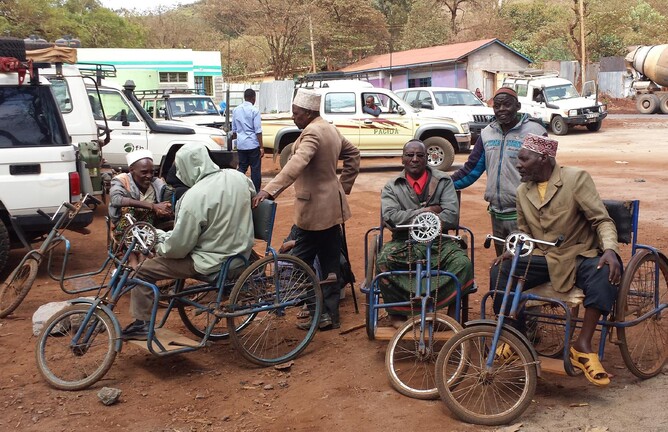Founded in 2002, the Millennium Water Alliance (MWA) is a coalition of charities who work to bring clean, safe drinking water and sanitation to millions of the world’s poorest people, with a focus on sustainable solutions rather than temporary measures. The MWA currently operates in seven countries worldwide.
Jon Lenchner, a research scientist, was recently a MAF passenger to Marsabit as part of a team from the Millennium Water Alliance (MWA) to visit projects that the organisation is involved in.
“The work we are doing is to help the semi-nomadic people of northern Kenya better manage the scarce water resources up there,” Jon explained. “The project has just over three years left to run and one of the main objectives is to create interventions and partnerships that are self-sustaining and not totally reliant on donor funding, which we expect to get much more sparse in the coming years”.
Amongst other things, the team visited a water point that has been constructed as part of the project. Jon described how it operated, in a way that keeps it affordable and accessible for the community. “Water is piped into this water point from a mountain spring. Villagers pay a tiny amount of money for the water using prepaid tokens. Access to the water point is controlled by a group of disabled elders (photo at top).
MWA has also been involved in constructing an experimental farm, which is so far proving to be a valuable resource. “The land is comprised of clay-rich soil that is very fertile”, Jon shared. “Planting crops that do not require a lot of water, and then harvesting and storing rain water is a potentially much more efficient way to use the land than grazing animals”. He was interested to observe that only the women of the community were involved in the farming, because the men remain fully occupied with tending their livestock. As he observed, “The process of adapting an exclusively animal-centric group of people to farming is in large measure an anthropological challenge”. During the visit, the women prepared a food tasting for the group, to sample the crops they have been growing. “I felt guilty about taking any food from them so accepted just a tiny morsel, but it was good!”
This was Jon’s first trip so far north in Kenya, and he described it as “in many ways like a trip to another planet.” Sometimes described as “forgotten Kenya”, this area of the country remains the focus of MAF’s work, as geographical isolation continues to bring hardship for many.
“The trip to Marsabit was a very fulfilling one”. Jon concluded. “We are grateful to the Mission Aviation Fellowship for providing us with affordable and professional air travel to the northern counties!”
